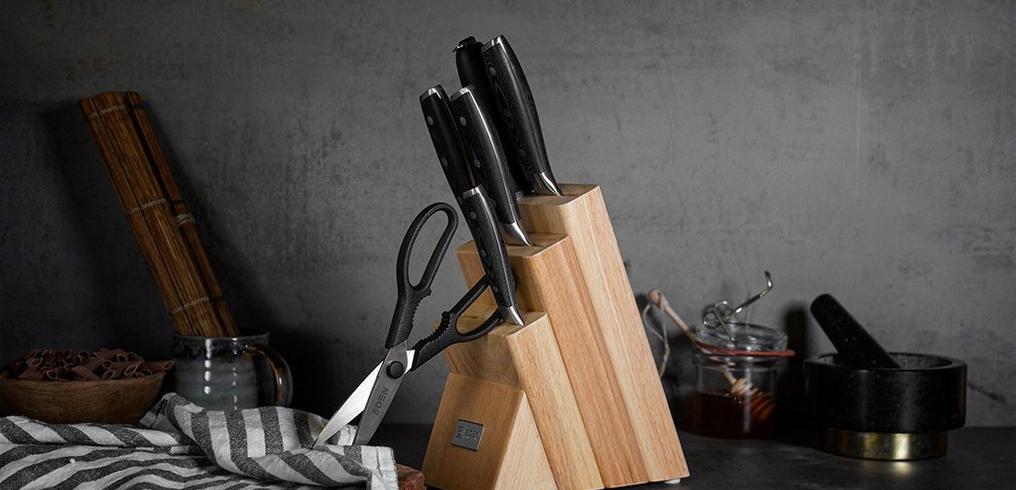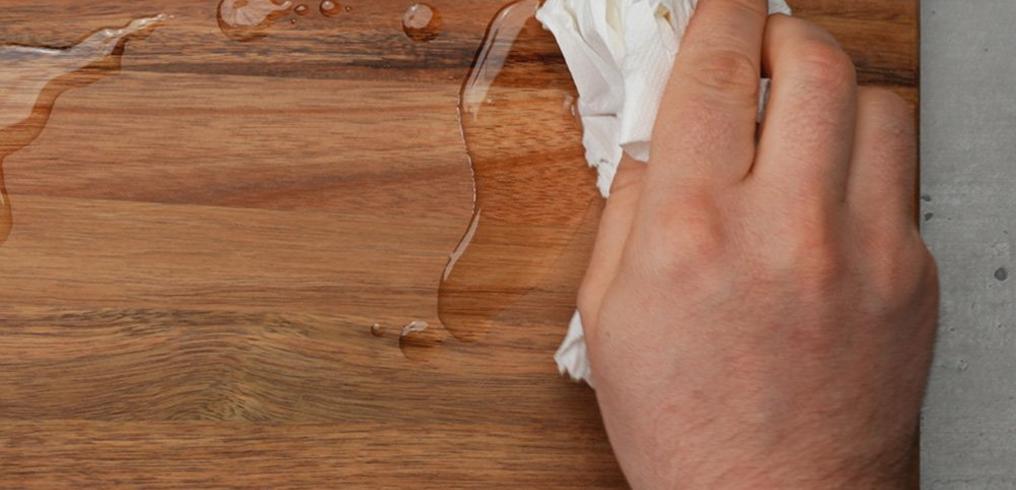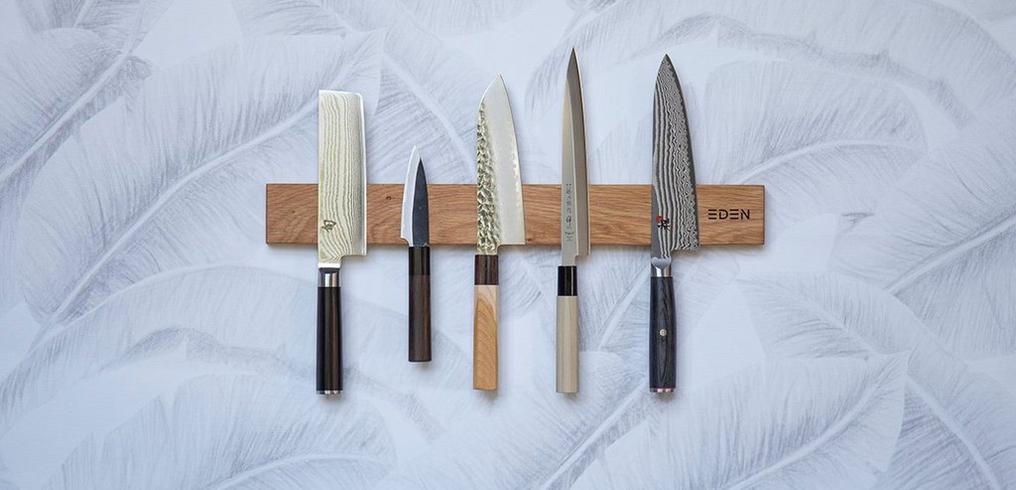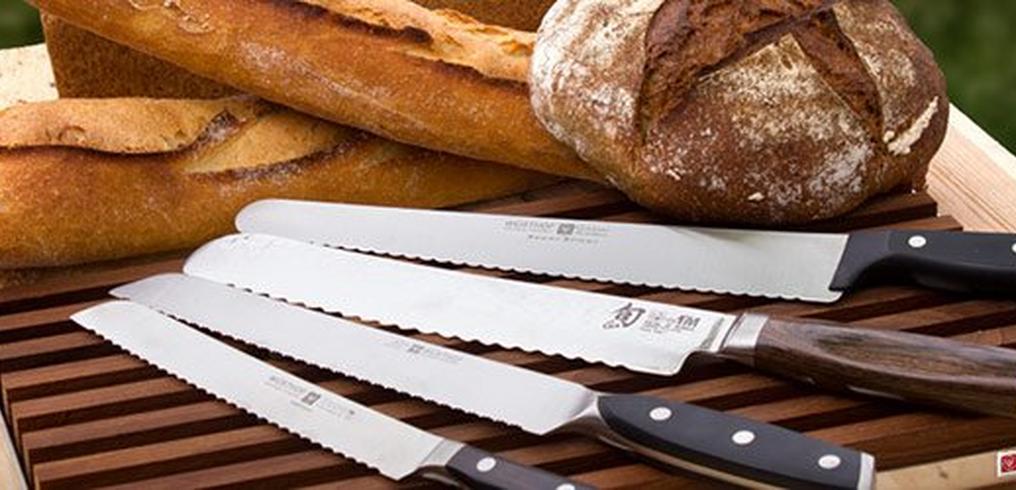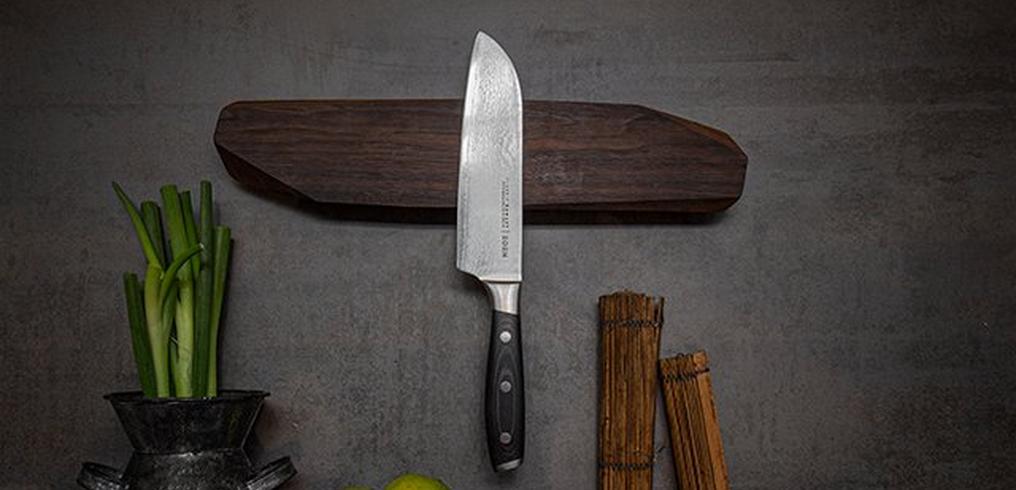Buying a kitchen knife?
Before you buy a kitchen knife you need to know what your needs are and which knife matches best to your needs. This document helps you in selecting the best knife and starts with a handy overview of all series of kitchen knives that we sell.
Eden Classic Damast
| Price indication | € 65,- |
| Thickness | Thin |
| Hardness(Rockwell) | 60 |
Remarks
High quality damast steel with a core of hardened AUS-10 steel.
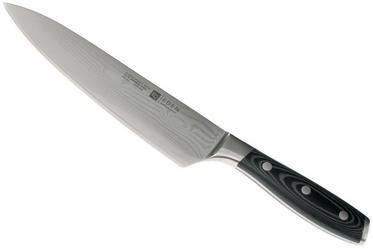
Eden Hammered Damast
| Price indication | € 99,- |
| Thickness | Normal |
| Hardness(Rockwell) | 56-58 |
Remarks
Special style. Good workmanship and quality. All-round chef's knife.
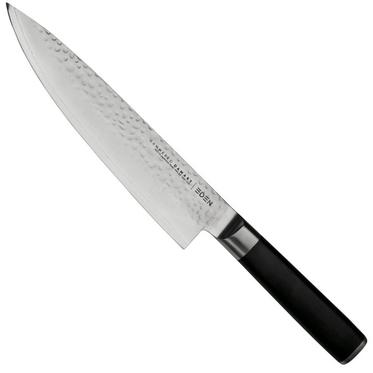
Eden Sugoi
| Price indication | € 89,- |
| Thickness | Normal |
| Hardness(Rockwell) | 56-58 |
Remarks
The olive wood handle gives the series a warm and stylish design.
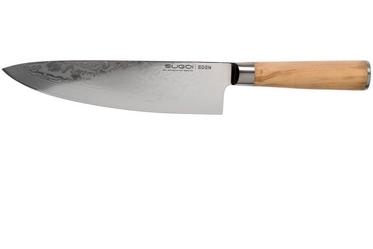
WMF Spitzenklasse Plus
| Price indication | € 87,95 |
| Thickness | Normal |
| Hardness (Rockwell) | 56-58 |
Remarks
Very solid due to high quality materials and excellent workmanship.
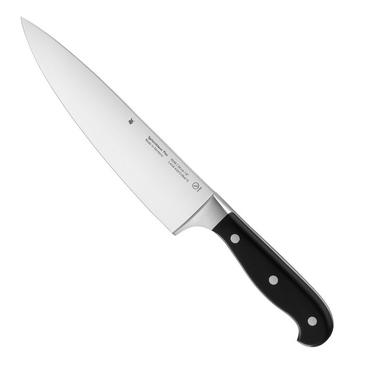
WMF Grand Class
| Price indication | € 98,95 |
| Thickness | Normal |
| Hardness(Rockwell) | 56-58 |
Remarks
Classic design and durable materials. A chef's knife you can rely on.
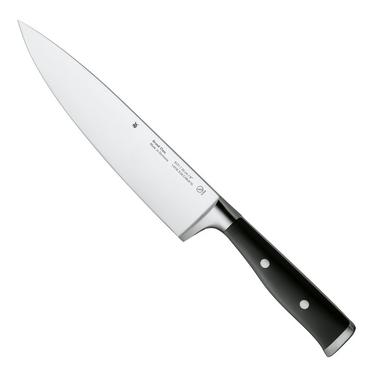
WMF Grand Gourmet
| Price indication | € 103,95 |
| Thickness | Normal |
| Hardness(Rockwell) | 56-58 |
Remarks
All-steel construction. Modern design.
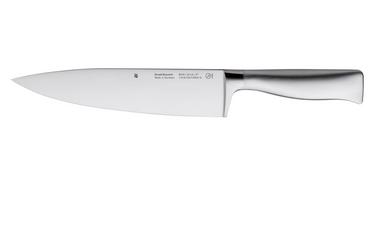
Zwilling Pro
| Price indication | € 81,95 |
| Thickness | Thin |
| Hardness(Rockwell) | 56-58 |
Remarks
The transition between blade and handle is seamless, which is very hygienic. The Zwilling Pro-knives feature a handle with rivets, giving them a typical, classical look. The weight and the size of the knives makes them particularly useful for those who enjoy working with a heavier type of kitchen knife.
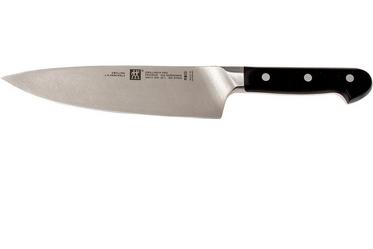
Zwilling Four Star
| Price indication | € 75,- |
| Thickness | Normal |
| Hardness(Rockwell) | 56-58 |
Remarks
Alround chef's knife.
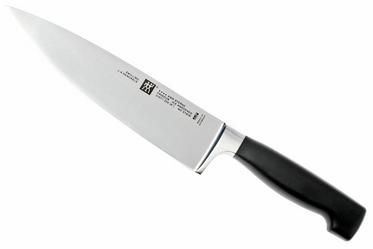
Zwilling Professonal S
| Price indication | € 99,- |
| Thickness | Normal |
| Hardness(Rockwell) | 56-58 |
Remarks
Traditional German type chef's knife.
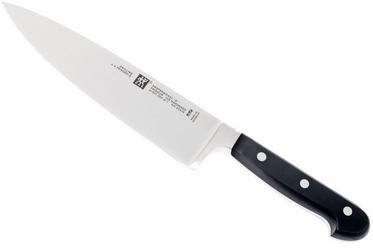
Lion Sabatier Fuso
| Price indication | € 75,- |
| Thickness | Thin |
| Hardness(Rockwell) | 60 |
Remarks
Design knife from Lion Sabatier
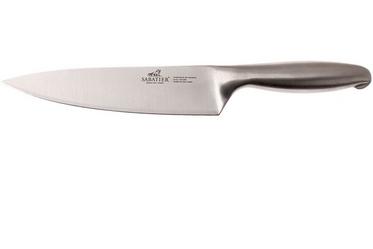
Kai Shun Classic
| Price indication | € 199,- |
| Thickness | Thin |
| Hardness(Rockwell) | 58 |
Remarks
Stainless steel Japanese knife with thin rasor sharp blade.
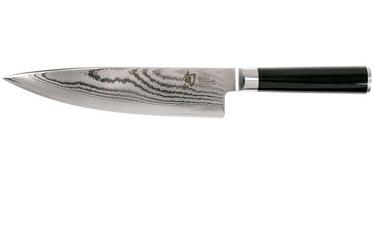
Thickness of a kitchen knife
The cutting performance of a kitchen knife is for a very important part determined by the thickness of the blade. The thicker the blade, the more friction occurs during cutting. This is caused by the thickness of the edge but the overall shape of the blade is also very important. This is because the edge of knives with a thick back will get thicker quickly when you sharpen the knife.
A thin knife is hard to produce and demands steel that is has a high resistance against deformation (hardness). The thinnest knives are therefore relatively expensive and are often made from non-stainless steel.
Should it be forged?
Many people still think good kitchen knives need to be forged. This is NOT TRUE. Forging used to be the process to produce the right quality of steel for making kitchen knives, but nowadays you can buy steel for making knives directly from the steel manufacturers.
Still some companies use forging to make some parts of the knife such as the bolster and angle but it is no longer nescesary to forge the blade.
Hardness
The hardness of a knife is an indicator for the ability to keep it's sharpness. In general you can say that the higher the hardness, the longer the knife stays sharp. The hardness of kitchen knives is specified in Rockwell C (HRC).
Handle
When you choose a kitchen knife the construction of the handle is an important point. If you know the knives will end up in the dishwasher (against our advice!) you will need to buy knives with a moulded plastic handle or welded stainless steel construction. Rivited handles will finally fall apart when the knives are washed in a dishwasher and wooden handles even sooner.
But, when you are sure you knives will not end up in a dishwasher, there is no reason not to buy the knives with the exotice wooden handles. It's up to you!
Sharpening
Every knife needs to be sharpened every now and then. Knives that won't get dull only exist in commercials! At the first cut your knife will start to get dull and to enjoy your knife to the max you should keep it sharp. Do not wait until you knife is dull before you sharpen it because that means that you have worked with a blunt knife.
To keep your knife sharp use a sharpening stone. For sharpening the knife 'on the job' you can best use a fine ceramic sharpening rod. Sharpening steels are not suitable for all knives. We still sell them but we recommend everyone to use a ceramic sharpening rod in stead.
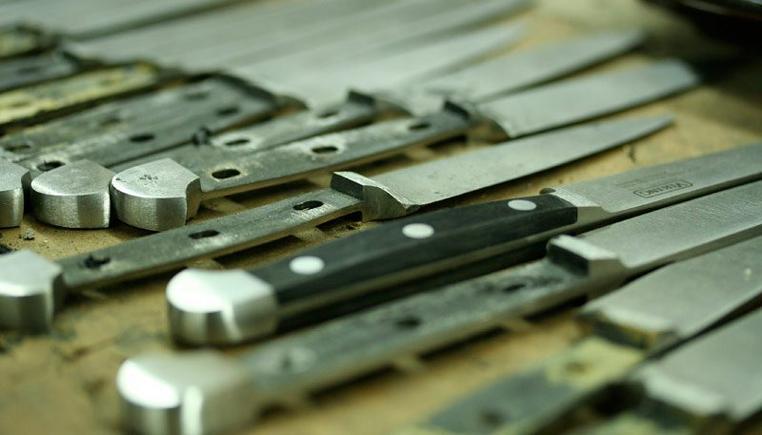
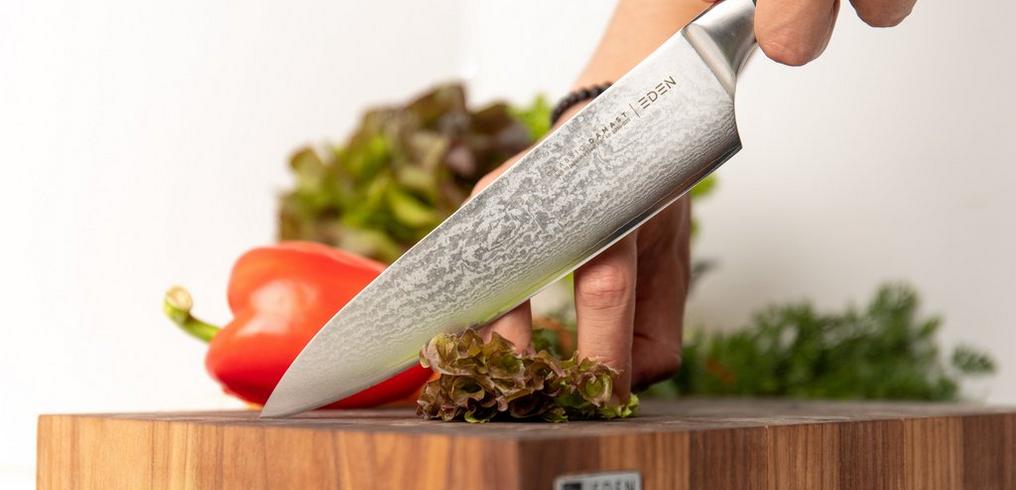
?%24center=center&%24poi=poi&%24product-image%24=&fmt=auto&h=490&poi=%7B%24this.metadata.pointOfInterest.x%7D%2C%7B%24this.metadata.pointOfInterest.y%7D%2C%7B%24this.metadata.pointOfInterest.w%7D%2C%7B%24this.metadata.pointOfInterest.h%7D&scaleFit=%7B%28%24this.metadata.pointOfInterest%29%3F%24poi%3A%24center%7D&sm=c&w=1016)
